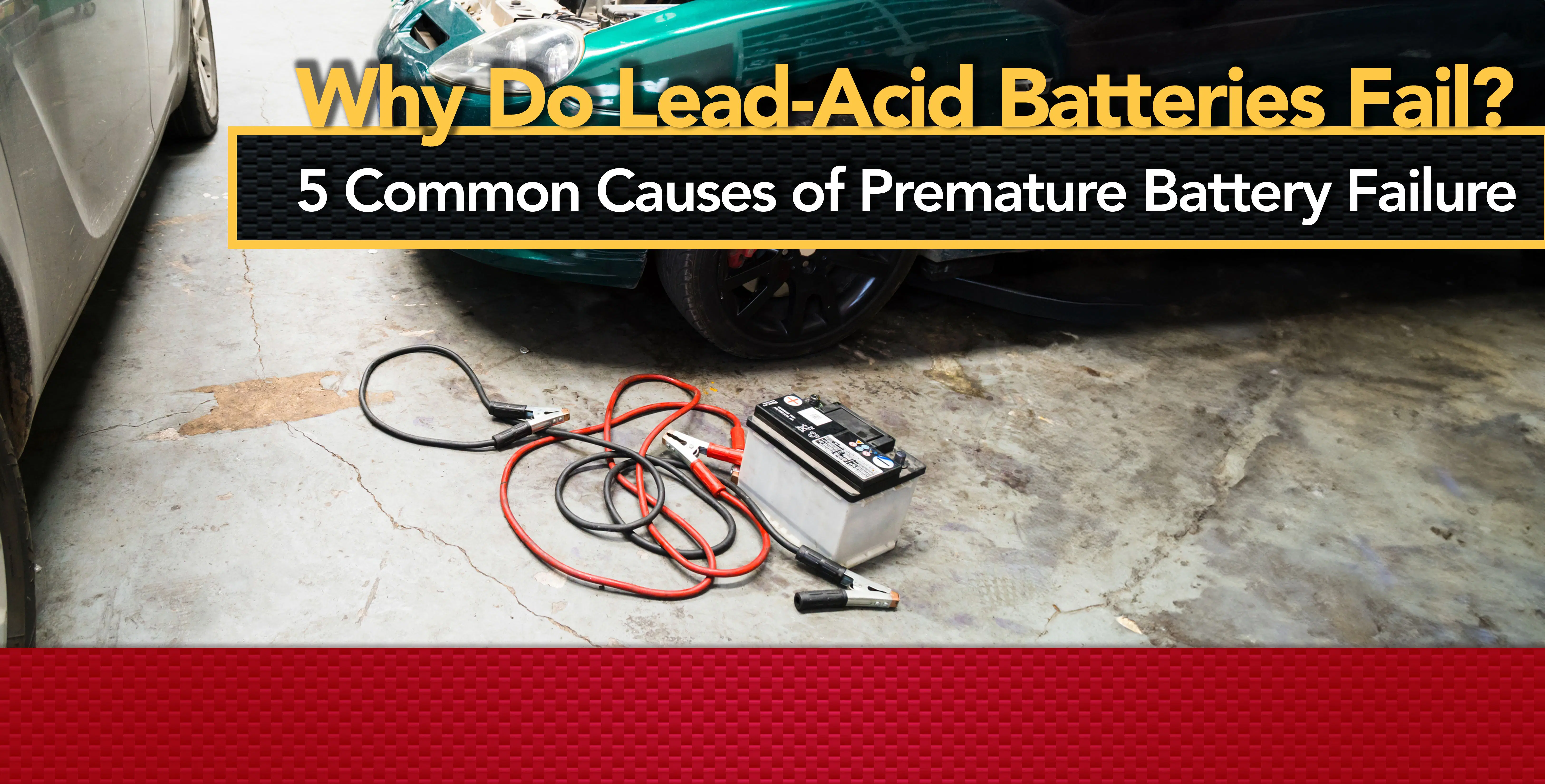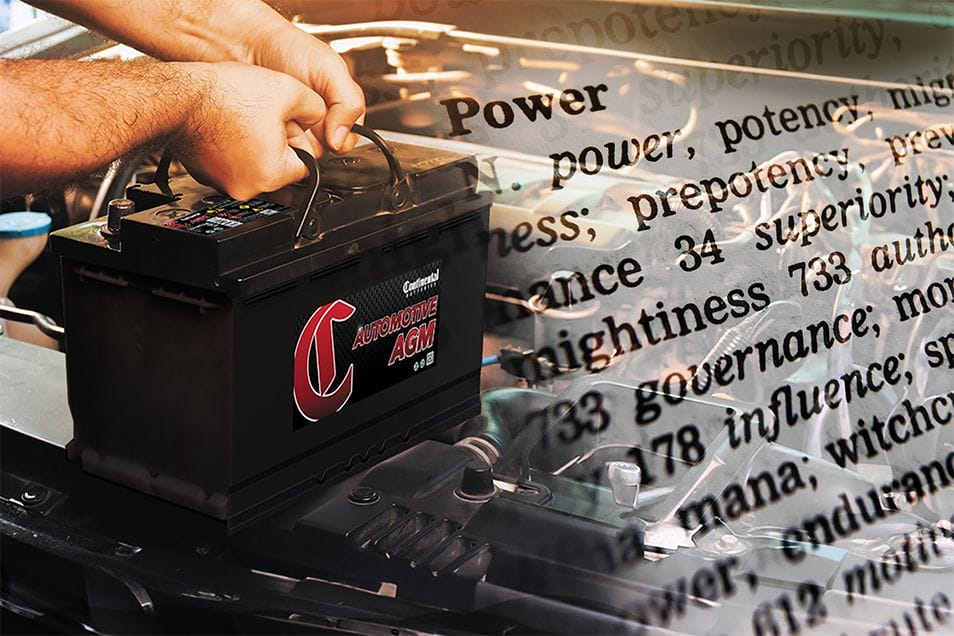
When was the last time you thought about your car battery? Unless you’re recharging a lithium battery, many people forget about their car battery until they find the vehicle just won’t start on a cold winter morning. If you’re hoping to avoid a dead battery, you may be wondering, how long do car batteries last, anyway?
The lifespan of a car battery can depend on a number of factors, from the type of battery to your driving habits to the climate and conditions where you live. Read on to learn the lifespan of different batteries, signs your car battery is dying and tips for lengthening the life of your battery.
How Long Should a Car Battery Last?
The average car battery life primarily depends on the type of battery. While a standard flooded battery will give you a good few years before it needs to be replaced, lithium batteries may last you over a decade. Here’s what you can expect in terms of the life expectancy of the most common battery types:
Flooded Battery Lifespan. A standard, flooded lead-acid battery tends to have the shortest lifespan of the different battery types since it was designed to provide short bursts of energy to start a vehicle. A flooded battery lifespan is about three to five years, or long enough to start the engine around 30,000 times.
Sealed Lead-Acid Battery Lifespan. Like flooded batteries, sealed lead-acid batteries last about 3 to 5 years, although sealed deep cycle batteries may last longer, about six years. These batteries are often used in recreational and marine vehicles because they won’t spill, even when the vehicle absorbs a lot of shock and vibrations from rough terrain or water.
Absorbent Glass Mat Battery Lifespan. AGM batteries keep the battery’s electrolyte in a solid, or absorbed, state that can impressively provide two to three times the lifespan of a flooded battery. AGM batteries last about seven years and are ideal for vehicles with start-stop technology.
Lithium Battery Lifespan. Ideal for electric cars and golf carts, lithium batteries have a wide lifespan range — as low as eight up to twenty years or between 100,000 and 200,000 miles. This lifespan can be shortened for vehicles in extremely hot or cold environments.
What Causes Car Batteries to Die?
No car battery lasts forever, but some things, from forgetting to turn off the dome light or driving during a heatwave, can shorten the lifespan of the battery. Here are some common causes of car battery failure:
User error. When you forget to turn off the interior lights overnight, you could wake up to a dead car battery. Leaving on electrical components of the car can quickly drain the battery, so it’s wise to double-check that accessories are fully off before leaving the vehicle.
More Information: The Impact of Parasitic Draw on Your Car Battery’s Lifespan
Rust and corrosion. Some corrosion around the battery terminals is normal, but it’s important to regularly clean car battery corrosion. Corrosion buildup can prevent power from flowing, making it harder for the battery to power the car and harder for the battery to recharge. Eventually, corrosion buildup can kill the battery.
Extreme weather. Like Goldilocks, your car battery wants the temperature to be just right. High temperatures can prematurely kill a battery, especially because the battery sits in a hot, closed environment under the hood. Cold temperatures aren’t great for batteries, either. Extreme cold slows the electrochemical reaction that generates power.
Driving habits. If your car is only experiencing the same 10-minute drive to the office each day, you can expect the battery life to be shortened. The battery needs time to recharge, which it does as you’re driving. If you’re only going a few miles per trip, your battery doesn’t have time to recharge, ultimately depleting its capacity.
Faulty alternator. Because the battery needs to recharge while driving, it relies on the alternator to do so. But if the alternator is worn out, it could cause the battery to fail prematurely. Common signs that the alternator is dying are dim, extra-bright or flickering lights on the car.
How to Know If You Need a New Car Battery
Now that you know why your car battery is dying, you may be wondering about the signs of a bad or declining car battery. There are many weak car battery symptoms to pay attention to, so you can replace the battery before it fails completely, leaving you late for an important meeting.
The engine struggles to start. If your car is taking longer than normal to start up, it could be a sign that the car battery is losing power. Eventually, the dead car battery won’t be able to start up the car at all.
Car accessories turn on, but the engine won’t start. Similarly, you might turn the key and notice that the radio or the car lights start up, but the engine won’t turn over to get the car running.
The car starts irregularly. Monday morning and the car won’t start. You stay home from work and try again the next day, and the car starts up just fine. If the engine is starting some days but not others, it may be a weak car battery symptom.
The battery smells like rotten eggs. Batteries don’t typically have a scent, but when the car battery is damaged or dying, it may be releasing hydrogen sulfide gas or leaking sulfuric acid from inside the battery. This will require immediate, professional attention since the gas and sulfuric acid are toxic.
The battery is visibly damaged. You should be inspecting your vehicle’s battery about twice per year for signs of trouble, and any visible damage to the battery is your sign to replace this part. Car batteries may have cracks or appear swollen when damaged.
How to Check a Car Battery
While your mechanic shop team will test your car battery for you during your regular oil changes, you can also check the car battery on your own at home if you suspect something is wrong. You can either check it with a multimeter or do a manual test.
Checking a Car Battery With a Multimeter. If you don’t already have one in your toolbox, you can pick up a multimeter at most major hardware stores or auto repair shops. To test the car battery:
- Keep the car off.
- Locate the battery.
- Clean any corrosion off the battery terminals, as corrosion can disrupt the multimeter readings.
- Set the multimeter to anywhere from 15 to 20 volts.
- Connect the multimeter leads to the corresponding positive and negative battery terminals. The red lead typically goes with the positive terminal, and the black lead typically goes to the negative terminal. Be sure to check the multimeter user manual to confirm.
- Check the multimeter display. It should be 12.2 to 12.6 volts. Any higher, and the battery has excessive voltage. A reading lower than 12.2 volts could suggest that it’s time to replace the battery.
Checking a Car Battery Manually. If you don’t have a multimeter, you can do a simple test to get a better idea of the health of your car’s battery. Still, make sure to do a more in-depth reading soon to measure the battery voltage.
To check the car battery:
- Turn the key in the ignition, only turning on the headlights but not the engine.
- Leave the headlights on for about 15 minutes.
- Turn the car all the way on (or have someone assist you by turning the car on while you stand nearby to keep an eye on the headlights).
- If the headlights dim after turning the car all the way on, it could be a sign that the battery is dying.
Car Battery Maintenance
The best way to extend the lifespan of your car battery is to give it regular TLC. From storing it properly during long periods without use to making sure to “water” your battery, here are some top car battery maintenance tips.
Store batteries properly. For RVs or other recreational vehicles or any cars you don’t plan on driving for longer periods of time, you’ll want to properly store the batteries. Keep charged, clean batteries stored in a climate-controlled setting away from moisture, heat or light.
Water the battery. For flooded lead acid batteries, there is a liquid electrolyte inside that needs to be refilled from time to time. You can refill it with distilled or deionized water. How often to water the battery depends on how often you’re using it as well as the temperature outside. You may need to water it weekly if you drive a lot each day, or you can water it every month or two with less frequent use.
Clean off corrosion. You should be checking the battery at least every six months. During these at-home inspections, make sure to clean off any corrosion if you see it forming on the battery.
Go for a joy ride. Short trips to and from work, school or the grocery store are inevitable, but if your usual errands are just a short drive from home, make time to go for some longer drives to help recharge the battery. At least once a week, make time to go for a 20- to 30-minute or longer drive to help lengthen the life of the battery.
Dead Battery? Find the Right Replacement
Even with proper maintenance, your car battery will die one day. Dealing with a dead battery is stressful enough, but trying to find the right replacement for your vehicle can make your day go from bad to worse. At Continental, we’re standing by to help you find the best battery for your needs — and dispose of your used one — so you can get back on the road.






